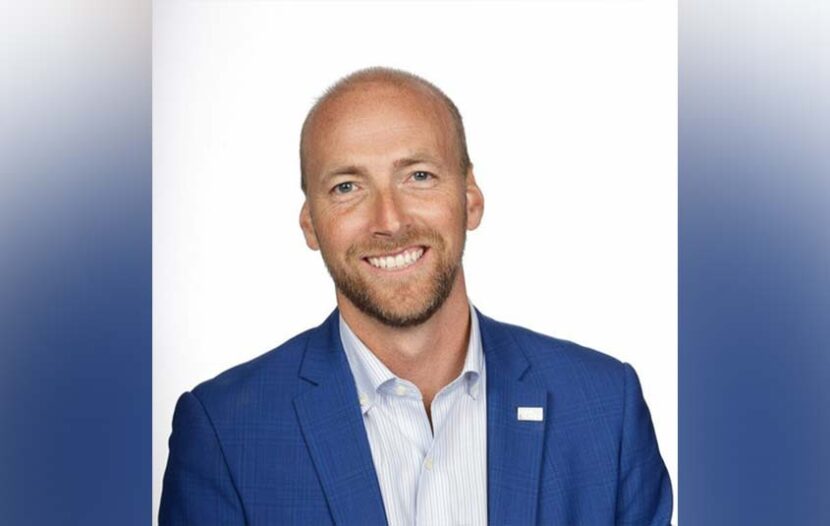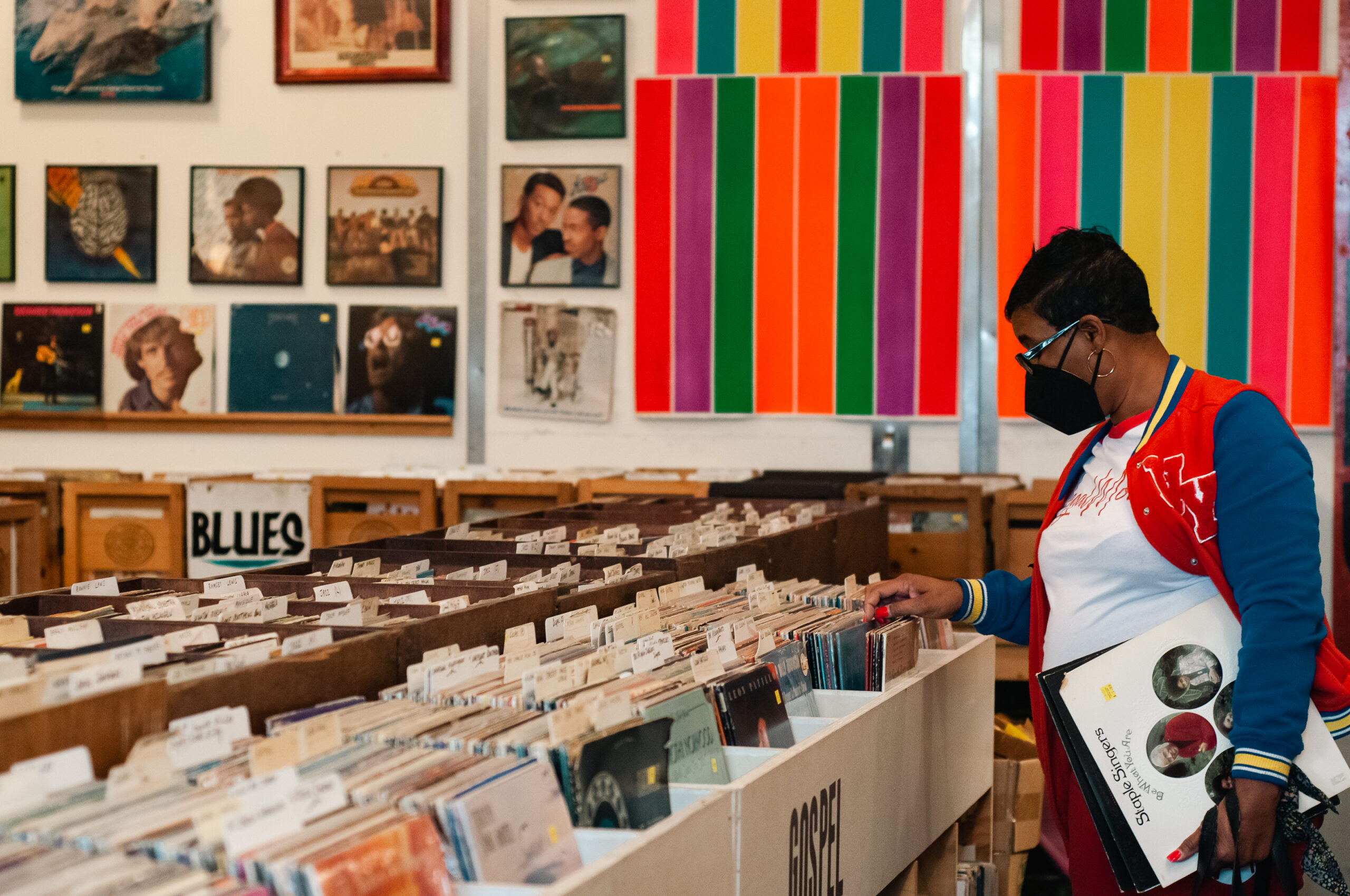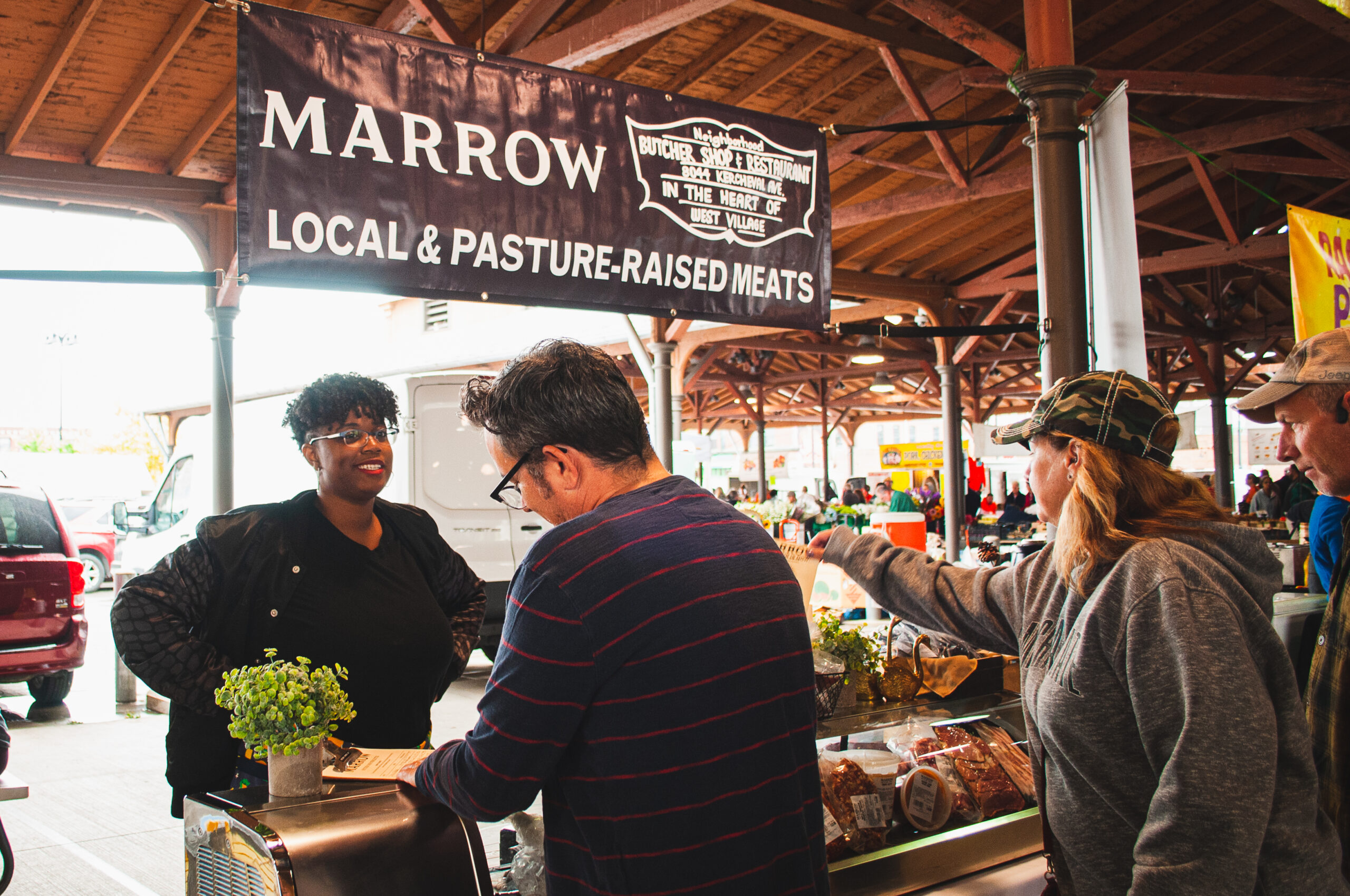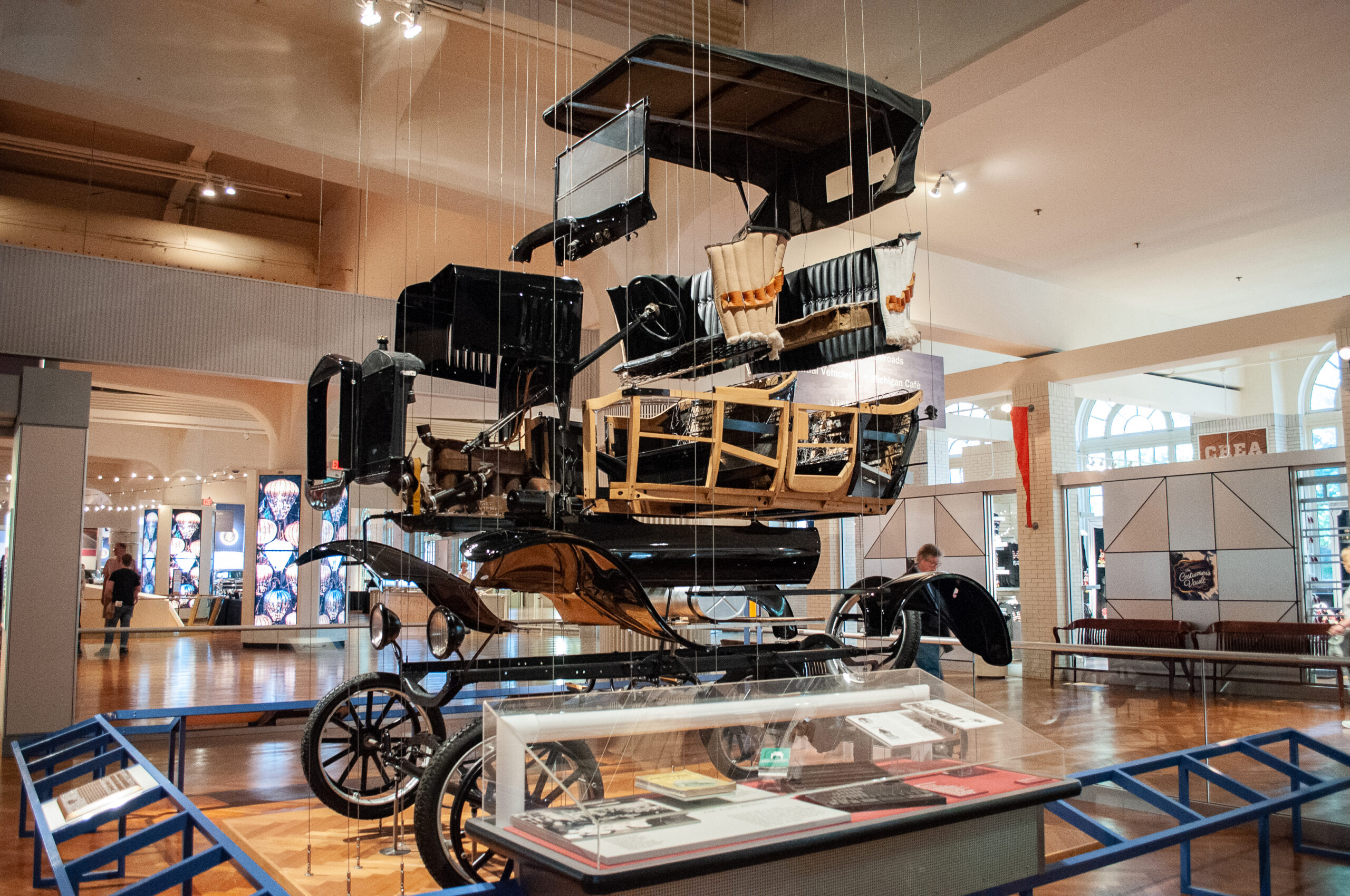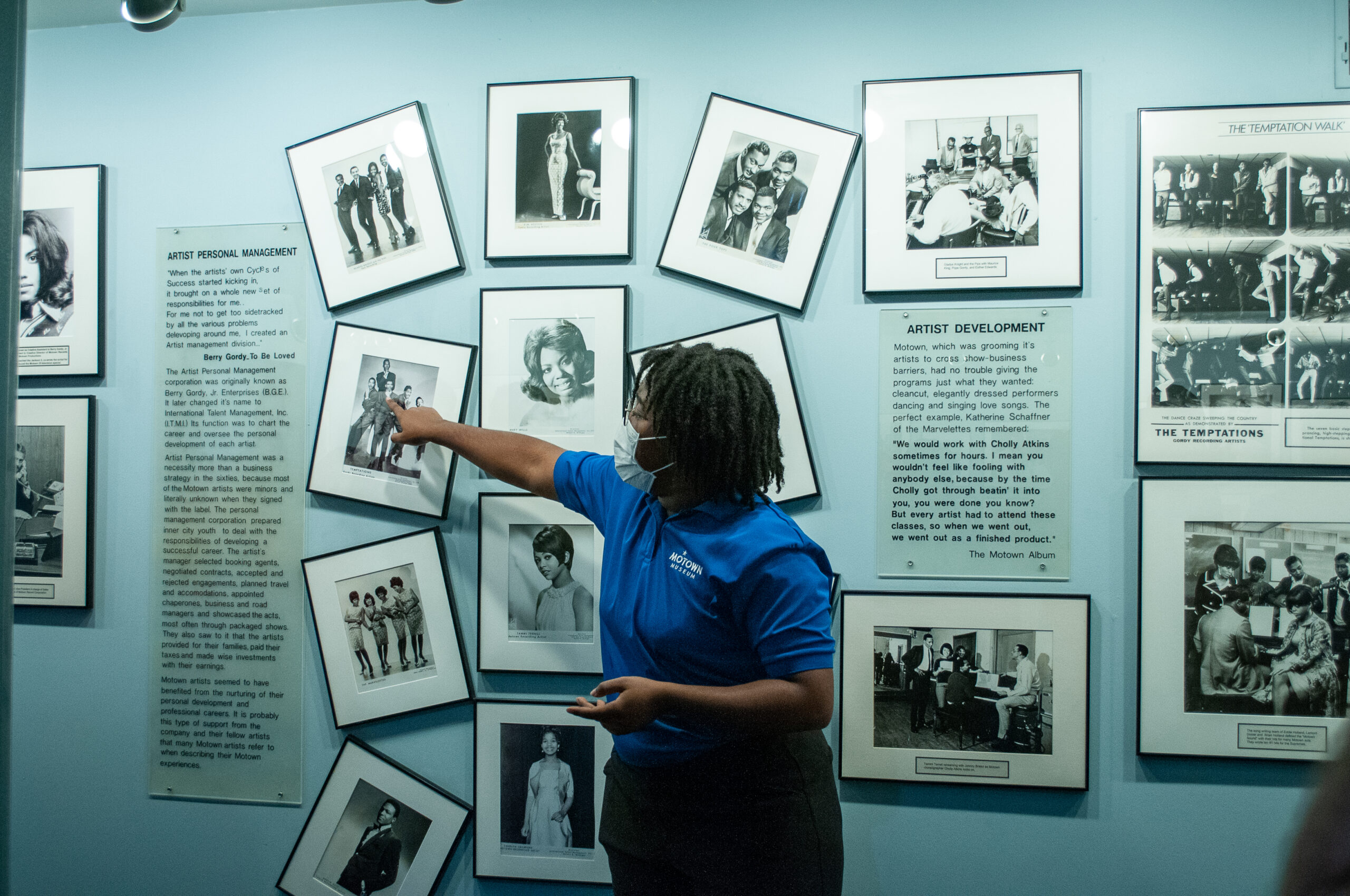TORONTO — Fact: Detroit has one of the top 10 safest downtown cores of any major metropolitan area in the United States.
Also fact? Very few people know.
Hence the dilemma for Visit Detroit’s Chris Moyer, Senior Director of Communications, who spoke to Travelweek about the many misconceptions of ‘The Motor City.’ Long known for being the epicentre of America’s automobile industry, Detroit is seeing a resurgence of sorts, both in visitor numbers and development, and yet it’s still having a hard time shedding its crime-ridden reputation.
It’s not without good reason, says Moyer, who tells Travelweek that Detroit’s negative perception is based on reality. Back in the 1950s, when the city and the Great Lakes region were manufacturing 80% of the world’s cars and car parts in the aftermath of World War II, Detroit was considered one of the two wealthiest cities in the entire world (the other being New York). But according to Moyer, with such a rapid rise in wealth comes an equally rapid decline.
“When you have that much market share, it’s only going to decline, particularly in a global industry. And perhaps our business leaders at the time didn’t adequately prepare for such inevitable decline following total global domination,” says Moyer.
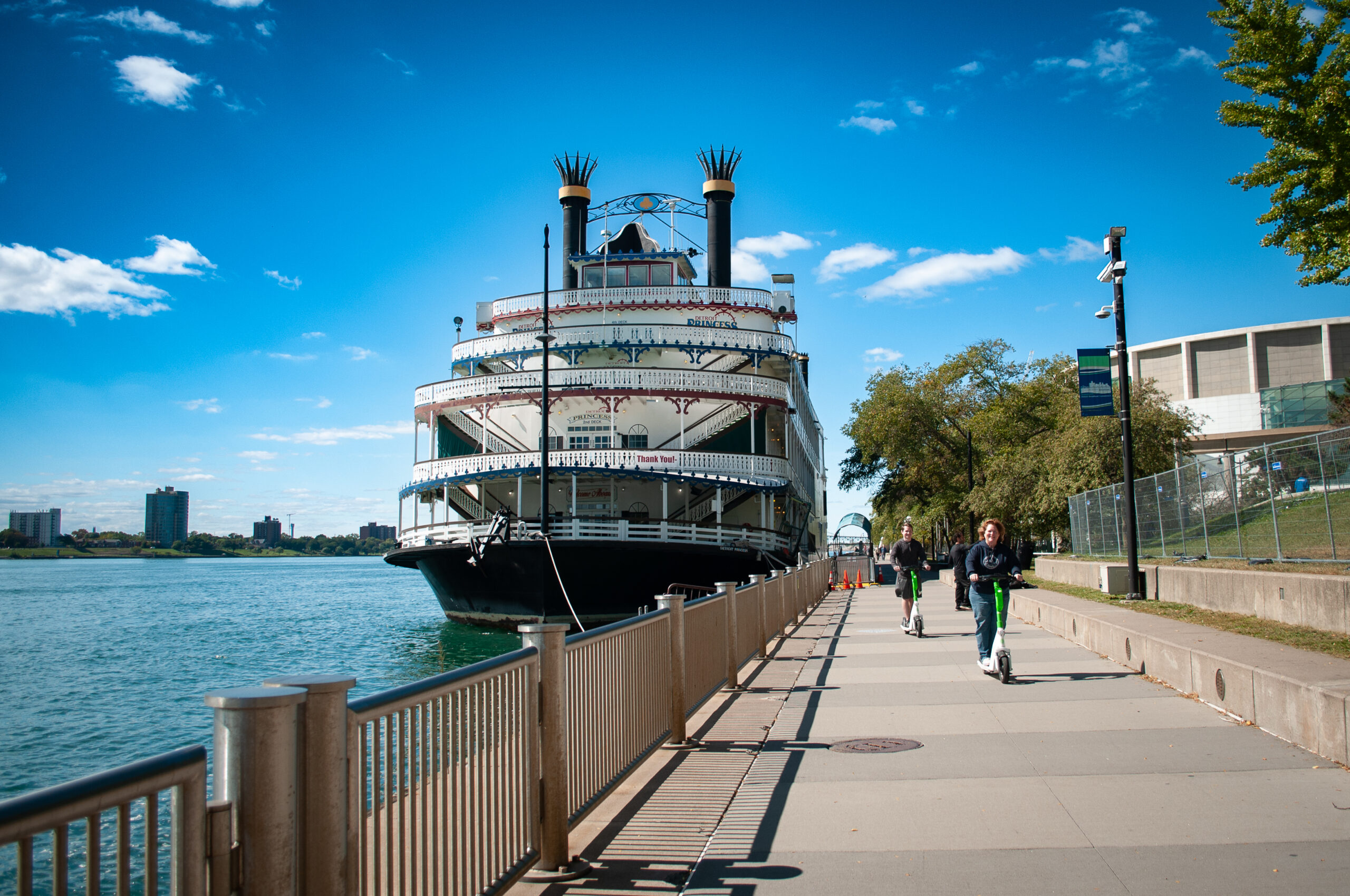
The Detroit Riverwalk / Credit: Felicia Byron
Detroit eventually fell into disrepair and, consequently, crime rates went up and educational opportunities dried up. But thanks in large part to community policing and enhanced security measures, the crime rate started to drop in the early 2000s. Today, it’s less than half of what it was in the 1990s, with violent crime decreasing 11% between 2021 and 2022.
And yet despite the fact that Detroit’s downtown is now among the top 10 safest in the U.S., (based on data from FBI Unified Crime Statistics), a recent survey by Gallup still listed Detroit as the least perceived safe city in the country.
“We have an incredibly safe, welcoming community but the negative perception has hung on for far too long,” says Moyer. “I’ll be the first to say that we need to do better at Visit Detroit. It’s time to change the story because it’s not just a story about safety – this is a story about the great things that have always happened in Detroit, even when the city was at its worst.”
Take for example the city’s incredible musical roots and the invention of Motown by Berry Gordy in 1959. A nod to Detroit’s legacy as a ‘motor town,’ Motown would play an integral role in popularizing music for both black and white people, achieving crossover success with such artists as Stevie Wonder, Smokey Robinson and The Supremes. Their roadmap to success would eventually lay the framework for other musical genres to take hold in Detroit, like techno in the 1980s.
“Detroiters have always been innovative, both musically and artistically,” says Moyers. “We have the oldest jazz club in the world – Baker’s Keyboard Lounge, opened in 1934 – plus Aretha Franklin started as a gospel singer in Detroit. And few people know that Detroit is the only UNESCO City of Design in the United States, one of only 43 in the world. We have some of the best art deco skyscrapers in the world, including the Guardian building and the Fisher building. We want people to know that we’re very much a cultural destination.”
To do this, Visit Detroit will be launching a new national and international marketing campaign in early 2024 that paints a more accurate picture of its many offerings. Described as a “love letter to the city,” the campaign is aimed at the “urban explorer under 40” and will target key markets including Toronto, Montreal, Quebec City, Vancouver and Calgary.
“This is a great family destination, a place to come get away for a weekend and experience art, culture, food and, of course music. Right now, the culturally-ingrained idea of Detroit is that it’s perhaps not safe and there’s nothing to do. But this is going to change as the word gets out, and we’re working hard on getting that word out more and more,” says Moyer.
“CANADA MATTERS – FULL STOP”
When asked about the Canadian market, Moyer cannot overstate enough just how important Canadian travellers are to Detroit.
“There is no single market domestically or internationally that is more important to us than Canada – full stop,” he says. “Saying it’s our number one market – which it is – doesn’t do it justice. You matter to us and we want to welcome Canadians of every different background to our great city.”
Detroit’s close proximity to the Canadian border played a key factor in the city’s post-COVID recovery, which Moyer says has been a slow and steady climb. In 2022, over 861,000 Canadians visited Detroit, just shy of its peak of 899,300 in 2018, Detroit’s best year in record.
“In the early days of the border reopening two years ago, that was the easy way to travel – coming down the 401 and crossing the Detroit-Windsor tunnel. So we benefitted greatly from the border reopening, and we missed you terribly while it was closed.”
Moyer is almost certain that Detroit will surpass 2022 visitation numbers this year – although it will take a little longer to beat 2018’s record high of 18.6 million total visitors.
“We’re inching closer and closer to that record year of visitation that we saw five years ago. Our new goal is to reach 25 million people by the end of the decade, and we’re on track to do that,” says Moyer.
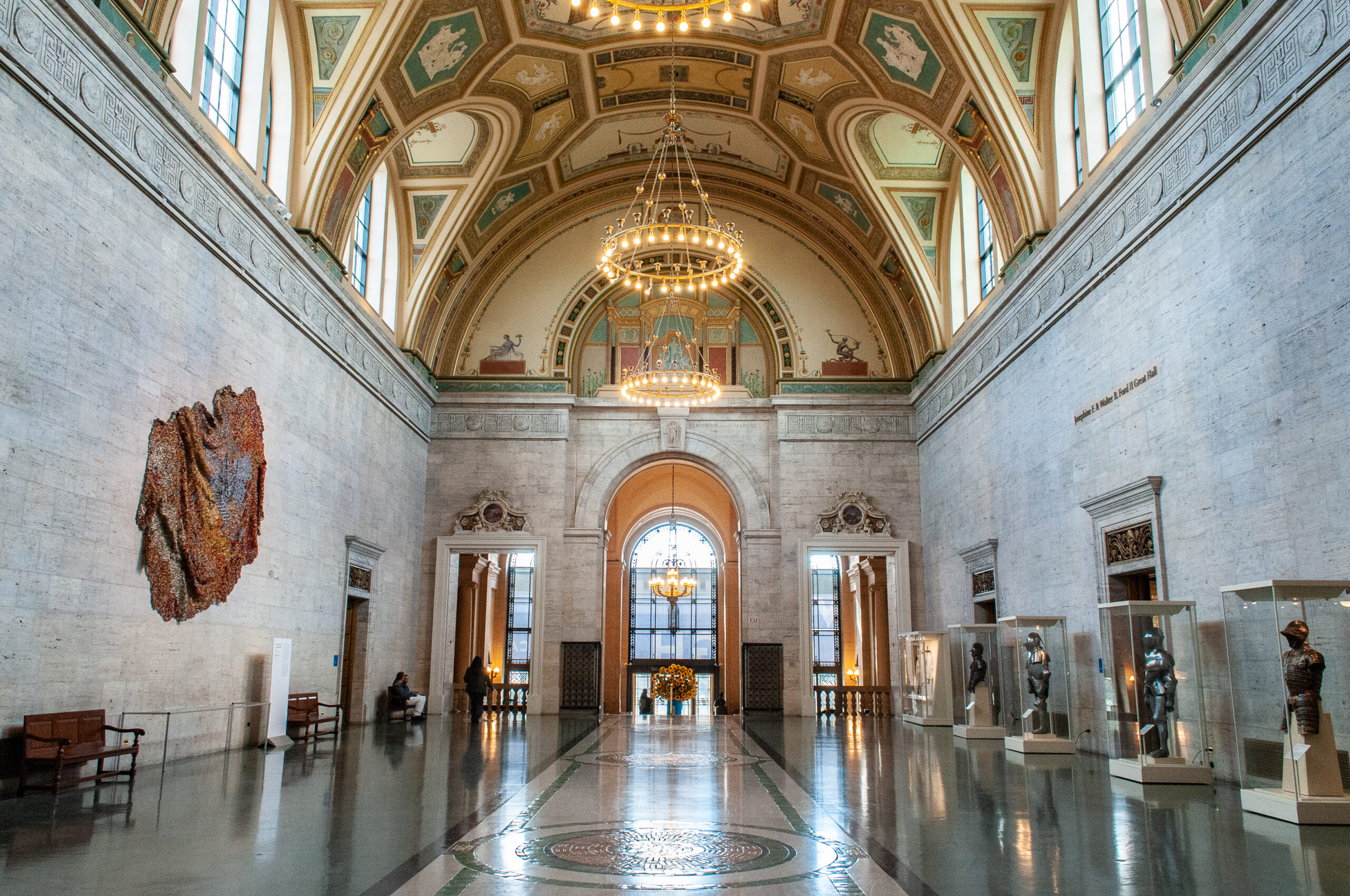
Fisher Building & Institute of Art Detroit / Credit: Felicia Byron
DETROIT’S REVIVAL
According to Moyer, Detroit’s revival really took hold within the last decade or so. Between 2010 and 2020, “you would have seen an incredible change in terms of the number of businesses and the number of people coming downtown,” he says. And despite the devastating impact the pandemic had on local businesses, COVID, says Moyer, was more of a pause than a full stop.
“There is currently US$8.5 billion worth of development in various stages, about $3 billion of which will come to final fruition at the beginning of next year,” says Moyer. “One of those projects is the Hudson Tower, which will be the second tallest building in the state of Michigan (the tallest, Detroit Renaissance Center, is also in Detroit) and house a 250-room, high-end hotel.”
Other new developments include Michigan Central Station, a former historic intercity passenger rail station opening in 2024 and featuring Google offices, restaurants and a hotel, as well as a new electric vehicle charging road, the first of its kind in North America, opening between Q4 2023 and Q1 2024. Detroit is also home to the number one river walk in the United States for three years in a row, according to ‘USA Today,’ which is being continually enhanced with additional parks like Valet Park. This year, The Detroit Riverwalk will be extended all the way from downtown to Belle Isle, a park located in the middle of the Detroit River.
New hotels that have opened their doors in the last two years include the Shinola Hotel, Detroit Foundation Hotel, The Siren Hotel and The Godfrey Hotel, all beautiful boutique properties.
COMING SOON: AGENT TRAINING PROGRAM
The launch of a new marketing campaign also means a renewed focus on travel agents. Moyer is fully aware that in order to spread the word that Detroit is both a safe and culturally-fascinating destination, he’ll need to rely heavily on the agent community.
“This is a relationship that, particularly in Canada, we are rebuilding in this post-pandemic world,” says Moyer. “We know this is a critical area that we need to get better at, and so we’re excited to be rolling out a number of new initiatives for agents early next year.”
These include a new training program for Canadian agents that includes a Visit Detroit specialist certificate, as well as Canadian-specific fams, including one this month and another in early October.
For more information about travel to Detroit, go to www.visitdetroit.com.
- Eastern Market Murals & Peoples Records / Credit: Felicia Byron
- Eastern Market / Credit: Felicia Byron
- Henry Ford Museum / Credit: Felicia Byron
- Motown Museum / Credit: Felicia Byron
